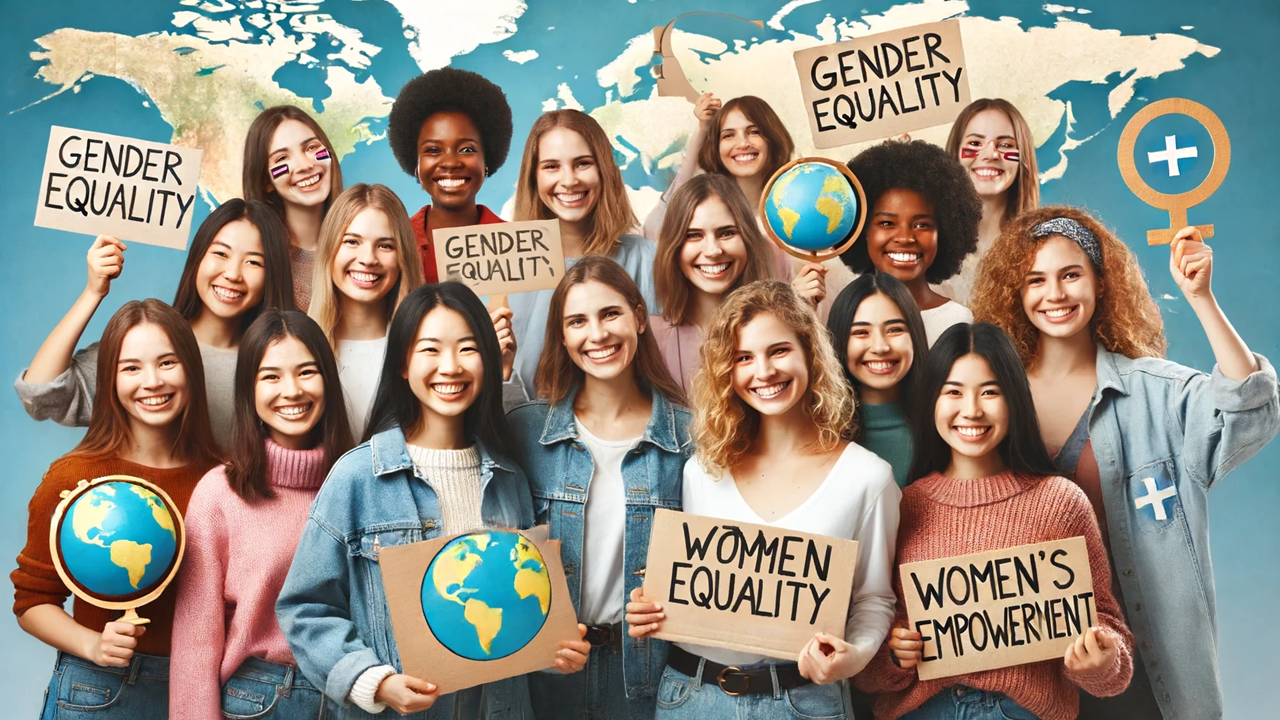World Bank Launches Sierra Leone Gender Action Plan to Address Persistent Gender Gaps
While Sierra Leone has made noticeable progress in improving gender outcomes, particularly in education and health, significant challenges remain, particularly in rural areas.

The World Bank has launched the Sierra Leone Country Gender Action Plan (C-GAP), a comprehensive initiative aimed at reducing gender inequalities and promoting gender equity across key sectors in Sierra Leone. This plan aligns with the World Bank Group’s Sierra Leone Country Partnership Framework (CPF 2021-2026) and the WBG Gender Strategy for 2024-2030, marking a significant step toward closing gender gaps in areas such as education, economic opportunities, health care, and decision-making.
The C-GAP is an operational and analytical framework designed to guide efforts in addressing gender disparities through various policies, projects, and advisory roles. It outlines key priority areas informed by extensive research, intending to build partnerships with local and international development actors to improve gender outcomes in Sierra Leone.
"The Government of Sierra Leone is committed to advancing gender equality, and we are proud to have partnered with the World Bank to develop the Country Gender Action Plan," said Hon. Isata Mahoi, Sierra Leone’s Minister of Gender and Children’s Affairs. "We look forward to the Bank’s continued support in turning this plan into action, empowering every woman and girl to thrive."
Progress and Challenges in Gender Equality
While Sierra Leone has made noticeable progress in improving gender outcomes, particularly in education and health, significant challenges remain, particularly in rural areas. For example, the report highlights that only 28% of rural girls attend secondary school, compared to 60% of urban girls and 62% of urban boys. Additionally, access to healthcare, particularly maternal services, remains limited in rural regions, which affects women disproportionately. Women's vulnerability in the labor market is also heightened due to the precarious nature of their employment, especially in agriculture and informal sectors.
Abdu Muwonge, the World Bank Country Manager for Sierra Leone, emphasized the importance of C-GAP, stating: "By focusing on economic opportunities, decision-making autonomy, and addressing gender-based violence, we aim to create a more inclusive and equitable society for all." Key Priority Areas Identified by C-GAP:
Enhancing Women's Livelihoods and Wage Earning Potential: The plan aims to address both supply- and demand-side factors to create economic opportunities, particularly for young women and those in rural areas. It will enhance women’s access to climate-resilient livelihoods in sectors like agriculture and forestry, providing equal access to training, inputs, and business management.
Promoting Women’s Decision-Making Autonomy and Leadership: The C-GAP focuses on strengthening women and girls' participation in decision-making at various levels, including within households, communities, and government. This initiative seeks to empower women with greater control over their lives, which can lead to improvements in labor participation, human development outcomes, and earnings.
Tackling Gender-Based Violence (GBV): Efforts will be directed at reducing gender-based violence, which significantly hinders the economic participation and overall well-being of young women. Empowerment strategies will focus on increasing women's access to resources, social assets, and personal agency, improving their economic and human development outcomes.
A Broader Vision: Cross-Cutting Issues
In addition to these core areas, the C-GAP addresses cross-cutting challenges, such as climate change, social norms, and exogenous shocks like pandemics, which exacerbate existing inequalities. The plan recognizes the urgent need to shift societal norms that perpetuate gender disparities, emphasizing that lasting change requires a multi-sectoral approach.
"This Country Gender Action Plan is more than just a document; it’s a commitment to the women and girls of Sierra Leone. We’ve worked together to create a roadmap that reflects their voices, dreams, and aspirations," said Chalwyn Caulker, Social Development Specialist and lead author of the report.
The C-GAP's introduction marks a critical step in Sierra Leone's broader efforts to achieve gender equality and women's empowerment, creating a blueprint that other nations could follow in addressing systemic gender inequities. By working alongside international and local partners, the World Bank aims to drive meaningful, sustainable improvements in women's lives across the country.
- READ MORE ON:
- Sierra Leone
- World Bank










